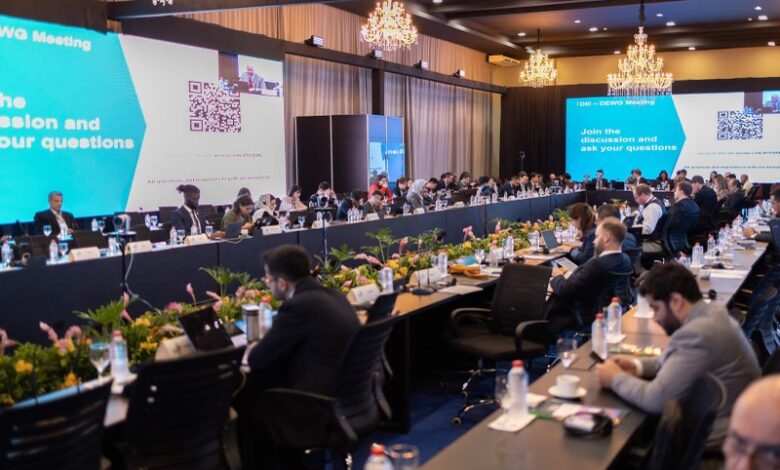Robust investments in infrastructure are essential to ensure universal access to the internet

DIGITAL ECONOMY
Currently, according to Giga Project data, around 2.6 billion people around the world have no access to the internet. Universal connectivity will not be achieved without a massive investment in digital infrastructure. A proposal to overcome this challenge was presented on Tuesday (11) during a G20 Digital Economy Working Group event.
06/11/2024 6:32 PM – Modified 35 minutes ago
Universal and meaningful connectivity. One of the priorities of the Digital Economy Working Group under Brasil’s G20 presidency is also one of the pillars of the struggle to overcome social inequality in an increasingly connected and digital world. Presently, around 2.6 billion people around the world have no access to the internet, according to data from the Giga Project, a UNICEF and International Telecommunication Union (ITU) initiative.
No significant steps can be taken, however, if a major (and costly) challenge is not faced, massive investment in the digital infrastructure that is crucial to ensuring that quality connectivity reaches the farthest corners of the Earth.
On Tuesday, the G20 Digital Economy WG side event “Digital Infrastructure Investment Initiatives: bridging the financial gap for significant universal connectivity” presented the Digital Infrastructure Investment Initiative (DII) proposed by the International Telecommunication Union, knowledge partner of Brasil’s presidency in the Digital Economy Working Group.
This coalition harbors stakeholders that are interested in the topic (governments, private sector and multilateral financial institutions) towards identifying financing mechanisms and tools that are capable of supporting universal and meaningful connectivity by 2030.
The goal is to address the challenges and opportunities that are inherent to digital infrastructure and to the need for investments in the sector, presenting examples of financial mechanisms that are capable of leveraging universal and meaningful connectivity around the world.
To ITU Senior Advisor for Strategic Engagement and Initiatives Alex Wong, the digital infrastructure finance gap needs to be rapidly closed, and this demands engagement by all the sectors that are involved.
However, according to the diagnosis presented at the event, these investments are still not considered economically viable by the private sector—which sees political, regulatory, judicial and taxation risks, as well as macroeconomic challenges, in financing digital infrastructure. The initiative would help engage the private sector in these efforts.
Investment in connectivity to reduce inequality
According to the ITU, as broadband introduction increases, there is also an increase in countries’ GDP. Altogether, 70% of the UN Sustainable Development Goals (SDG) indicators have a digital component, highlighting the role of digitalization in global sustainable development and in the combat against structural inequalities.
“Internet access is not magic, it is technology. The G20 must discuss democratic connectivity that ensures infrastructure across all countries, promoting access to quality internet for all,” said the secretary of Strategy and Networks of the Brazilian Presidency’s Social Communications Secretariat (Secretaria de Comunicação Social – Secom) Brunna Rosa. “The challenge is to connect everyone without leaving anyone behind, transforming people’s lives, whether in the fields of education, health, or work.”
This concern is reiterated by Wong. Together with UNICEF, he explained, the ITU is promoting the Giga Project, an initiative that connects schools all over the world. “Investing in connectivity in schools, for instance, is strategic. Today there are more than 6 million disconnected schools around the world and there is a need for initiatives to address this,” he said.
The Brazilian National Strategy for Connected Schools (Estratégia Nacional de Escolas Conectadas) was also presented during the event. The strategy is taking internet access to around 140 thousand Brazilian public schools, both urban and rural.
“Access to funding from the Universal Telecommunications Service Fund (Fundo de Universalização dos Serviços de Telecomunicações – FUST) by private operators for investment in the expansion of their networks returns in public school connectivity,” explained Brazilian Communications Minister Juscelino Filho, who opened the third meeting of the Digital Economy WG in São Luís. “Furthermore, part of the resources from the 5G Spectrum Auction are also directed to projects aimed at connecting schools and equipping classrooms that are enabled for the digital environment”, said the Minister.


